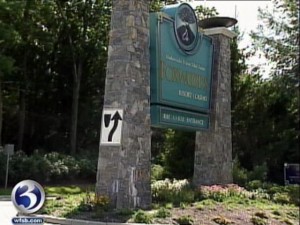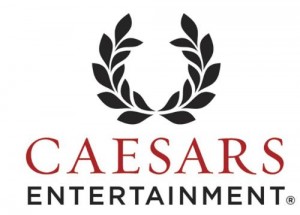Driven by apocalyptic job-loss projections by Foxwoods Casino Resort and Mohegan Sun, the House of Representatives of Connecticut passed a casino bill to Gov. Dannel Malloy (D) for his  signature. The bill doesn’t authorize a casino per se but rather allows MoFox to cut a host-community agreement, then bring that to the Lege and the U.S. government for approval. A MoFox consultant predicted that 9,000 direct and indirect jobs could be lost if Connecticut doesn’t retaliate against casino openings in Massachusetts. That argument swayed Connecticut solons, who voted the bill through with a strong (if not veto-proof) majority. Considering that the eventual project is going to have to be something of a rush job, is sticking a bunch of slots in a box and slapping “casino” on the side of a building going to stave off MGM Springfield or Plainridge Park, let alone Wynn Everett?
signature. The bill doesn’t authorize a casino per se but rather allows MoFox to cut a host-community agreement, then bring that to the Lege and the U.S. government for approval. A MoFox consultant predicted that 9,000 direct and indirect jobs could be lost if Connecticut doesn’t retaliate against casino openings in Massachusetts. That argument swayed Connecticut solons, who voted the bill through with a strong (if not veto-proof) majority. Considering that the eventual project is going to have to be something of a rush job, is sticking a bunch of slots in a box and slapping “casino” on the side of a building going to stave off MGM Springfield or Plainridge Park, let alone Wynn Everett?
* Stockton University‘s attempted to purchase the Showboat from Caesars Entertainment has created a nightmare. Not only is the  company still trying to back out of the purchase, the clock is running on an attempted flip to Glenn Straub, which expires July 3. In the meantime, Stockton is trying to assure thee 2,200-person freshman class that tuition will not be driven up by the cost of the Showboat buy (which Stockton is trying to recover via a lawsuit) and that there will be enough on-campus housing for everyone. Caesars’ failure to remove the covenant between itself and Trump Entertainment Resorts that the Showboat be used as a casino and nothing else is creating plenty of headaches.
company still trying to back out of the purchase, the clock is running on an attempted flip to Glenn Straub, which expires July 3. In the meantime, Stockton is trying to assure thee 2,200-person freshman class that tuition will not be driven up by the cost of the Showboat buy (which Stockton is trying to recover via a lawsuit) and that there will be enough on-campus housing for everyone. Caesars’ failure to remove the covenant between itself and Trump Entertainment Resorts that the Showboat be used as a casino and nothing else is creating plenty of headaches.
Up the road, in a Manhattan courtroom, U.S. District Judge Shira Scheindlin said ‘Not so fast’ to Caesars’ attempt to shuck the guarantees on $750 million in debt. Scheindlin said a bankruptcy trustee can seek a summary judgment on parts of the guarantee dispute. It also gives the affected creditors leverage to bring Apollo Global Management and TPG Capital to the bargaining table. To prevent Caesars Entertainment Operating Co. (“Bad Caesars”) assets from
 being attached by creditors, “Good Caesars” would have to put itself into bankruptcy, widening the consequences of Caesars’ insolvency.
being attached by creditors, “Good Caesars” would have to put itself into bankruptcy, widening the consequences of Caesars’ insolvency.
What’s also at stake is Caesars’ status vis-a-vis the Trust Indenture Act of 1939. Scheindlin is mulling whether Caesars violated that law when it stripped the bondholders of their guarantees. “As we have repeatedly argued in court, the parent guarantee was validly terminated in accordance with the terms of the indentures,” maintained a Caesars spokesman but that viewpoint isn’t cutting much ice with Judge Scheindlin.
* If online gamblers in the U.S. are like those in Great Britain, opponents of online gaming may be unplugging the casino customers of the future. A study by Databuild Research & Solutions found a 50% increase in play from 2008 and a growing number of affluent participants. They’re better-educated and likelier to shun VLTs and lotteries. Married couples are playing more, as are women aged 18-34.
To push back against that trend, casino moguls shouldn’t demonize Internet gambling (I’m looking at you, Sheldon and Steve) but widen their offerings to include fewer “dumb,” passive slot machines and more of the skill-based product that was recently legalized in Nevada. A recent upward trend in slot play on the Las Vegas Strip is credited to Baby Boomers, not millennials. One company, Gamblit, is incubating some of its skill-based machines in the U.K., waiting for Nevada regulations to gel.
* New Hard Rock Casino Lake Tahoe is credited with that hyper-volatile market’s 60% increase in April gambling revenues.

